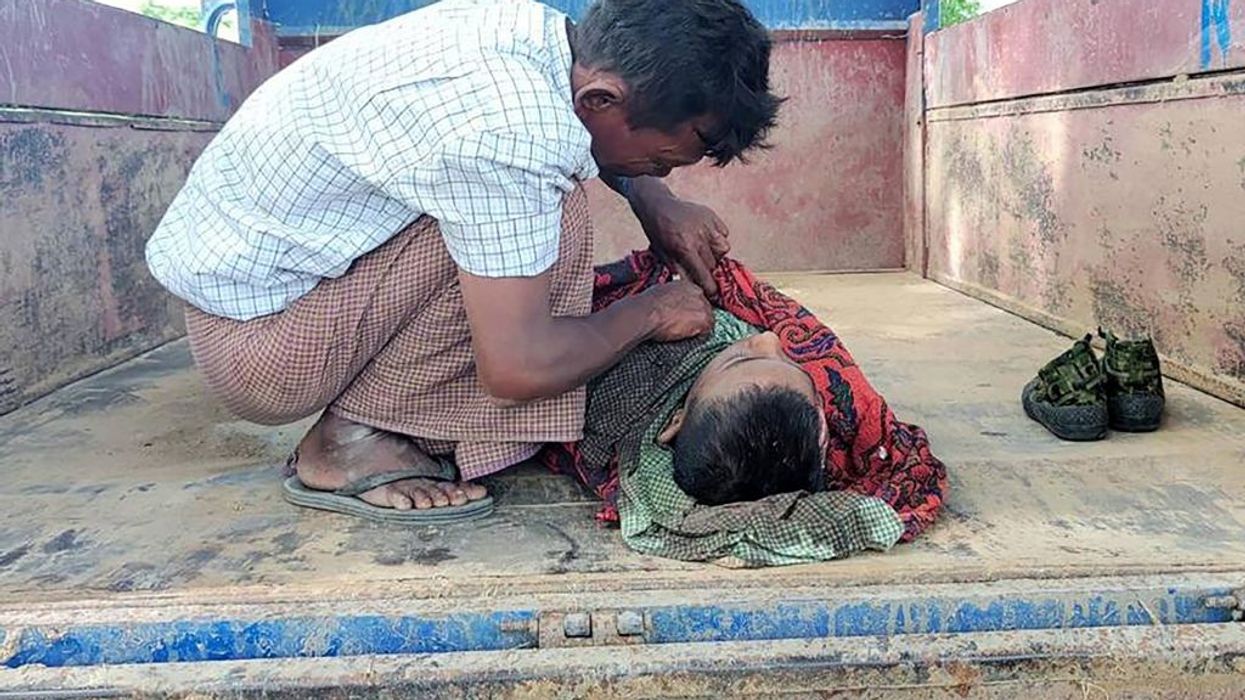At least 11 schoolchildren died in an air strike and firing on a Myanmar village, according to the United Nations children's agency, an attack the country's junta said targeted rebels hiding in the area.
UN chief Antonio Guterres on Tuesday condemned the strike, according to his office, which stated at least 13 people died, including 11 students.
The Southeast Asian country has been in chaos since the military seized power in a coup in February last year, with nearly 2,300 civilians killed in a crackdown on dissent according to a local monitoring group.
The Sagaing region in the country's northwest has experienced some of the fiercest fightings, and clashes between anti-coup fighters and the military have seen entire villages burned down.
The UN children's agency UNICEF condemned Friday's violence in Depeyin township in Sagaing.
"On 16 September, at least 11 children died in an air strike and indiscriminate fire in civilian areas," UNICEF said in a statement issued Monday.
It said schools must be safe and never targeted.
"At least 15 children from the same school are still missing," UNICEF said, calling for their immediate safe release.
Guterres, who on Tuesday was hosting world leaders at the UN General Assembly, "strongly condemns the attacks by Myanmar armed forces on a school in Let Yet Kone" and offered his condolences to victims' families, his spokesman Stéphane Dujarric said in a statement.
Such attacks on schools in contravention of international humanitarian law constitute "grave violations against children in times of armed conflict strongly condemned by the Security Council," the Guterres spokesman said, calling for the perpetrators to be held accountable.
Video footage obtained from a local community group shows a classroom with blood on the floor, damage to the roof and a mother crying over her son's dead body.
'They just attacked'
The junta said they had sent troops in helicopters to Let Yet Kone after receiving a tip-off that fighters from the Kachin Independence Army (KIA) -- an ethnic rebel group -- and from a local anti-coup militia were moving weapons in the area.
The military accused the rebel fighters of using civilians as human shields, and said it had seized mines and explosives from the village.
"Security members gave necessary medical treatment and arranged to send patients to a nearby hospital," the military said in a statement.
Junta spokesman Zaw Min Tun on Tuesday accused the KIA of taking villagers to a monastery and then firing on troops from there.
A villager contacted by AFP rejected the military's suggestions there were fighters in the area.
"They just attacked the school. They say someone attacked them, then they fought back but this is not true," said the villager, who spoke on condition of anonymity for their own safety.
The villager said the military had taken away some of the bodies and detained multiple people, including children and teachers.
Save the Children Asia Regional Director Hassan Noor said schools should be off-limits during conflicts.
"How many more incidents like this need to take place before action is taken?" Noor said, urging the UN Security Council and Association of South East Asian Nations to take swift action.
ASEAN has led so far fruitless diplomatic efforts to resolve the crisis in Myanmar. The group's leaders meet in Phnom Penh in November.
(AFP)




